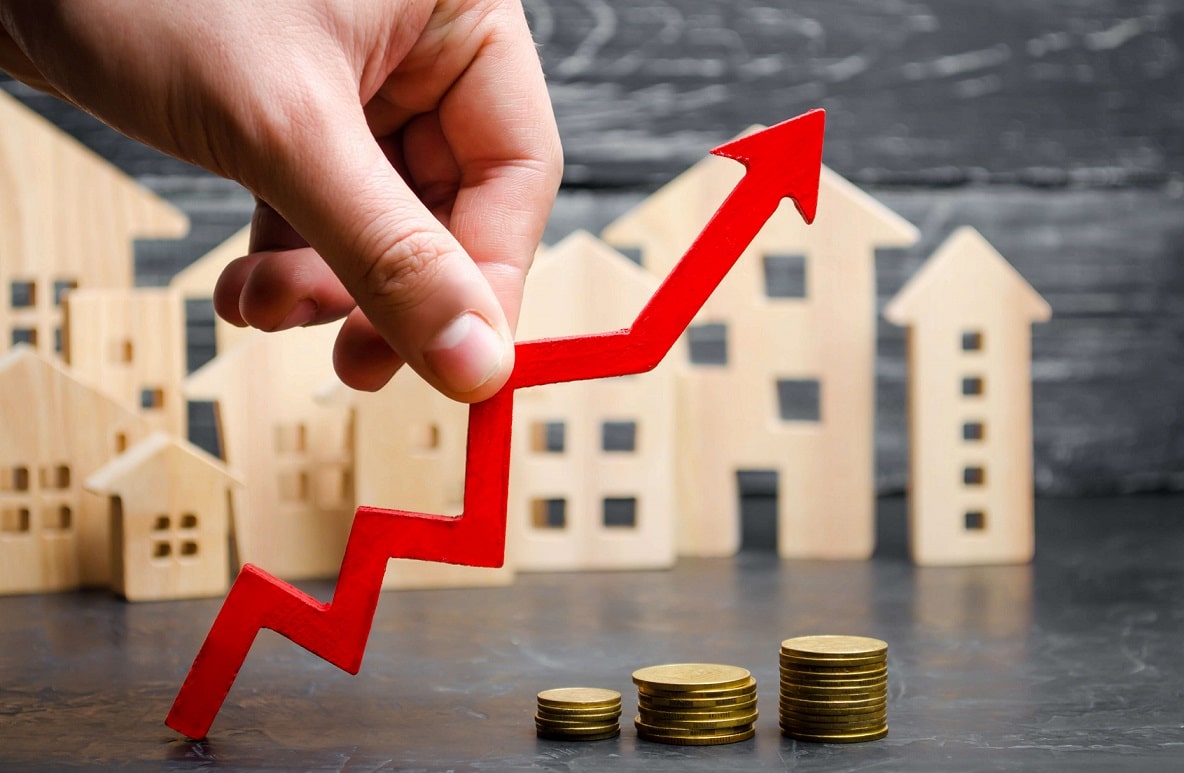With the gradual decline in debt costs and limited available resources for sale, the average annual price growth across 56 markets tracked by the Knight Frank Global House Price Index reached 3.6% in the twelve months leading up to March this year, up from 3.2% compared to the previous quarter. Poland, where prices rose nominally by 13% over the past 12 months, ranked among the top three countries with the highest price increases.
Knight Frank’s Global House Price Index analyzes 56 housing markets worldwide.
Key findings:
- Turkey once again leads the Knight Frank index, recording a 9.9% real annual price growth despite a 52% nominal increase;
- 82% of all global housing markets are experiencing price increases;
- The average annual price growth in the index was 3.6% in Q1 2024, with an average quarterly price increase of 1.3%.
In Q1 2024, global housing markets saw stronger growth, with the annual result reaching 3.6%. This marks a significant improvement compared to the 2.2% growth observed in Q2 last year, as markets absorbed the impact of the rapid increase in interest rates worldwide since early 2022.
While prices are rising at an annual rate of 3.6%, this is still below the long-term average trend of 5.6% over the past 20 years. Quarterly growth, although more variable, is 1.3%, comparable to the last two quarters and slightly below the long-term average of 1.4%. Considering the markets studied by Knight Frank, 82% recorded annual price increases in Q1 of this year, the best result since Q4 2022. Quarterly, 67% of markets saw price increases, the strongest since Q3 2022.
Despite high inflation in many global markets, real property price growth remains negative. Taking inflation into account, prices fell by an average of 0.4% in the twelve months leading up to March this year. Real annual price growth is currently 3.3% below the long-term average of 2.9%.
“Property prices have risen over the past year in most global markets. Many of them are struggling with a shortage of properties for sale and slower new building completion, leading to relatively healthy demand that pushes prices to new heights. However, in the long term, only lower debt costs will sustain price growth,” comments Liam Bailey, global head of research at Knight Frank.
Individual markets:
Turkey once again leads the Knight Frank index, with significant domestic inflation impacting the housing market. After peaking at 86% in October 2022, Turkey’s CPI (Consumer Price Index) fell to a low of 38% in June last year but has since risen again to 75%. Despite a more than 50% increase over the year to March 2024, real prices in Turkey fell by 9.9% over the past twelve months.
Poland is one of six out of the 56 analyzed countries (along with Turkey, Bulgaria, Colombia, Taiwan, and Greece) where price growth reached double digits.
“The high growth rate is attributed to both high inflation and the specific characteristics of the local market, where government mortgage subsidy programs and strong rental demand, driven in part by refugees from Ukraine, significantly influence demand and prices. With such a strong rental market, buying apartments has been a good way to protect capital against inflation. Therefore, despite rising loan costs and reduced availability, housing prices have risen, reflecting a strong supply shortage and strong demand,” explains Dorota Lachowska, head of research at Knight Frank Poland.
The Australian market, with a 7.5% increase over the past 12 months, has seen a strong turnaround from last year when prices were under pressure from rising interest rates. However, prices fell by 1% in the last three months.
The United States recorded a strong growth of 6.5%, with prices rising by 1.9% in the last quarter, supported by low inventory levels, even as debt costs burden the market.
A 1.6% increase in the UK in Q1 indicates further slowdown as high debt costs limit affordability.
European markets include eight of the 11 countries recording price declines, with France (-5.2%) and Germany (-3.9%) feeling the effects of recent economic slowdown and high inflation.
Hong Kong lags behind other key global markets, with a price decline of 11.6% over the past 12 months. A slower economy has led to a market correction.
